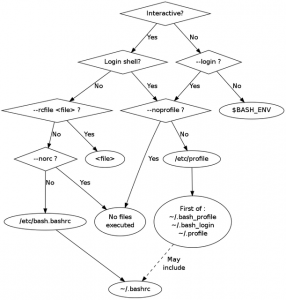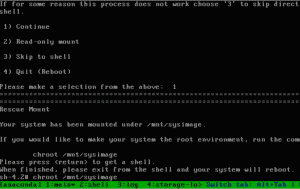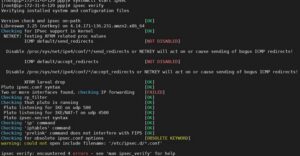As a system administrator you may need to determine public IP of your Linux server from time to time for troubleshotting purposes or other tasks. Here is how you can determine public IP from Linux command line:
Tag: Linux
Apr 19 2023
Terraform set timezone upon virtual machine creation
Sometimes it’s important to set proper timezone on the server and recently I’ve got this task: set proper timezone automatically based on the server’s location in Azure Cloud. Moreover, I needed timezone to be set automatically by Terraform upon virtual machine creation. In my case I had Ubuntu VMs in Azure and here is the …
Sep 14 2021
How to copy directory with SCP
The Unix command scp (which stands for “secure copy protocol”) is a simple tool for uploading or downloading files (or directories) to/from a remote machine. The transfer is done on top of SSH, which is how it maintains its familiar options (like for specifying identities and credentials) and ensures a secure connection. It’s really helpful …
Aug 26 2021
Linux shell modes and Capistrano
This is possibly one of the most complicated support questions that can be asked, the only real answer is it depends. It’s really a question of which kind of shell Capistrano is using, it’s a matrix of possibilities concerning login, non-login, interactive, or non-interactive. By default Capistrano always assigns a non-login, non-interactive shell.
Nov 04 2020
How to store /var on a separate partition
What is the correct way to store /var on a separate partition? First prepare a new partition (e.g. with parted or fdisk and mkfs). For example, let’s create a new partition in fdisk:
|
1 |
#fdisk /dev/vda |
then choose n for the new partition and go through configuration steps. choose w at the end to write changes to …
Jul 29 2020
ORA-09925: Unable To Create Audit Trail File
Upon trying to start Oracle database service I got the following ORA-09925 error in $DB_HOME/startup.log file
|
1 2 3 4 |
SQL> Connected to an idle instance. SQL> ORA-09925: Unable to create audit trail file Linux-x86_64 Error: 2: No such file or directory Additional information: 9925 |
The same ORA-09925 error when I tried to log on to SQL*Plus.
May 26 2020
How to move disk space from LVM partition to another
Default LVM partitioning in Linux may not be optimal for some tasks. For example, root partition can be too small and filled up after some time while home partition is large and almost unused. In this case one obviously would want to transfer some amount of space from /home to / partitions. Consider the following …
May 07 2020
Rescue a CentOS system with GRUB
GRUB (Grand Unified Bootloader) is the most widely used bootloader among Linux operating systems (OS) but it can boot any OS. GRUB main functionality is to allow users to select between different operating systems to boot. As bootloader GRUB is installed on the MBR (Master Boot Record) and additionally to allow us to select different …
Apr 22 2020
Disable send_redirects or NETKEY
During the process of a VPN client configuration with xl2tpd and openswan ipsec verify command threw the following error: Disable /proc/sys/net/ipv4/conf/*/send_redirects or NETKEY will act on or cause sending of bogus ICMP redirects! To fix this we need to disable send_redirects and save changes in /etc/sysctl.conf so they will be permanent across reboots. Here is …
Jun 27 2019
10 Practical Sar Usage Examples
There are two ways to invoke sar. sar followed by an option (without specifying a saXX data file). This will look for the current day’s saXX data file and report the performance data that was recorded until that point for the current day. sar followed by an option, and additionally specifying a saXX data file …
- 1
- 2







